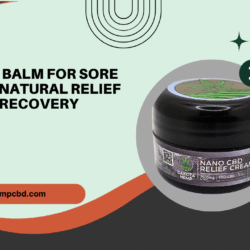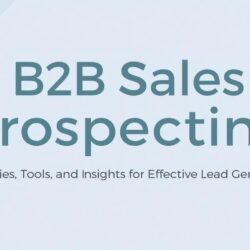Creating a successful B2B Marketing campaign requires strategic planning, precise execution, and continuous optimization. In the current business landscape, buyers expect value-driven, personalized experiences that help them solve complex challenges. Designing impactful campaigns is about more than visuals or messaging—it is a systematic approach that aligns objectives, target audiences, and measurable outcomes to generate engagement, nurture leads, and drive revenue.
Defining Clear Objectives for Campaign Success
The first step in designing a B2B marketing campaign is establishing specific goals. Objectives should be tied to measurable outcomes such as qualified lead generation, pipeline acceleration, brand visibility, or customer retention. Setting clear key performance indicators like click-through rates, conversion ratios, engagement metrics, and return on investment provides benchmarks for evaluating performance. A campaign without defined objectives risks unfocused messaging and inconsistent results.
Audience Research and Segmentation
Understanding your audience is central to campaign design. B2B buyers often include multiple stakeholders with varying priorities, which makes segmentation essential. Effective segmentation involves analyzing firmographics, purchase intent, engagement behavior, and industry trends. Tailored messaging for each segment ensures relevance and increases engagement. Precision targeting not only reduces wasted resources but also creates stronger resonance with decision-makers.
Crafting a Compelling Value Proposition
Every impactful B2B campaign communicates a clear value proposition. The messaging should focus on addressing specific business problems, demonstrating measurable benefits, and differentiating the solution from competitors. Effective campaigns emphasize outcomes such as improved efficiency, cost savings, or strategic advantage. A consistent and persuasive value proposition strengthens brand credibility and guides prospects toward conversion.
Designing Multi-Channel Campaign Strategies
Multi-channel strategies maximize reach and ensure consistent engagement. Campaigns should integrate email marketing, social media, content syndication, webinars, and paid advertising to guide prospects through the buyer journey. Each channel serves a unique purpose: email nurtures leads, social media drives awareness, and content syndication expands visibility to targeted accounts. A coordinated approach creates seamless experiences and reinforces brand messaging across touchpoints.
Content Development and Storytelling
Content is the backbone of any B2B campaign. High-quality content educates, engages, and inspires action. Thought leadership articles, whitepapers, webinars, videos, and case studies help buyers understand challenges and evaluate solutions. Storytelling humanizes complex offerings, making them relatable and memorable. The content should align with the buyer’s journey, providing educational insights in the awareness stage and evidence-driven solutions in the decision stage.
Incorporating Personalization for Engagement
Personalization enhances engagement and effectiveness. Using behavioral data, intent signals, and account-specific insights, marketers can deliver customized messages, dynamic content, and targeted offers. Personalization demonstrates that a brand understands the prospect’s challenges and priorities. By creating tailored experiences, campaigns drive stronger engagement, shorten sales cycles, and improve conversion rates.
Implementing Account-Based Marketing (ABM)
Account-Based Marketing is essential for targeting high-value B2B prospects. ABM focuses on customizing campaigns for specific accounts, ensuring that decision-makers receive content relevant to their unique needs. Coordination between marketing and sales teams ensures consistent communication, efficient lead nurturing, and faster deal closure. ABM increases ROI by focusing resources on prospects with the highest potential impact.
Leveraging Technology and Marketing Automation
Technology and automation streamline execution and enhance campaign performance. Marketing automation platforms manage lead nurturing, segmentation, and scoring at scale. CRM systems consolidate data and provide actionable insights into buyer behavior. Advanced tools like AI-driven analytics and predictive lead scoring help marketers optimize targeting, personalize messaging, and anticipate customer needs. Technology enables campaigns to scale efficiently while maintaining precision.
Aligning Marketing and Sales Teams
Collaboration between marketing and sales ensures maximum campaign impact. Marketing delivers qualified leads with rich engagement data, while sales teams convert those leads with context and insight. Shared goals, unified reporting, and frequent feedback loops strengthen alignment. When both teams work cohesively, campaigns generate higher conversion rates, shorten sales cycles, and produce tangible business results.
Executing Campaigns with Precision
Effective execution relies on meticulous planning, timely implementation, and proactive monitoring. Teams should ensure messaging consistency, channel integration, and adherence to schedules. Real-time tracking of engagement and conversions allows marketers to address underperforming elements immediately. Precision execution ensures campaigns maintain momentum, achieve objectives, and provide a seamless experience for the audience.
Monitoring and Optimizing Performance
Continuous optimization is essential for sustaining campaign success. Key metrics, including engagement rates, conversion rates, lead quality, and revenue impact, should be regularly analyzed. A/B testing, audience feedback, and performance reviews identify areas for improvement. By iteratively refining messaging, content, and targeting, marketers enhance efficiency, increase ROI, and ensure campaigns remain relevant in a dynamic market environment.
Adapting to Emerging Trends in B2B Marketing
The B2B marketing landscape is rapidly evolving with innovations in AI, predictive analytics, interactive content, and intent-driven strategies. Campaigns that integrate emerging technologies deliver deeper insights, improved targeting, and personalized engagement. Marketers must remain agile, experimenting with new formats and tools to stay ahead of competitors and meet the changing expectations of buyers.
Sustaining Long-Term Relationships
Impactful campaigns are designed to build long-term relationships rather than just drive immediate results. By consistently providing value, addressing challenges, and demonstrating expertise, brands cultivate trust and loyalty. Long-term relationships lead to repeat business, referrals, and increased lifetime customer value, amplifying the overall impact of marketing efforts.
The Human Element in B2B Campaigns
Despite reliance on data and automation, human insight remains crucial. Understanding emotional and business drivers helps marketers design campaigns that resonate on a deeper level. Personalized communication, empathy-driven messaging, and authentic storytelling foster trust and strengthen connections with key decision-makers. Combining human intelligence with technology ensures campaigns are both precise and relatable.
About Us
Acceligize is a global B2B demand-generation and technology marketing firm specializing in performance-driven lead generation solutions. Their services include content syndication, account-based marketing, intent and install-based targeting, and custom campaign strategies. Leveraging data science, technology, and human intelligence, Acceligize helps clients reach high-quality audiences and drive conversions across the full marketing funnel.





